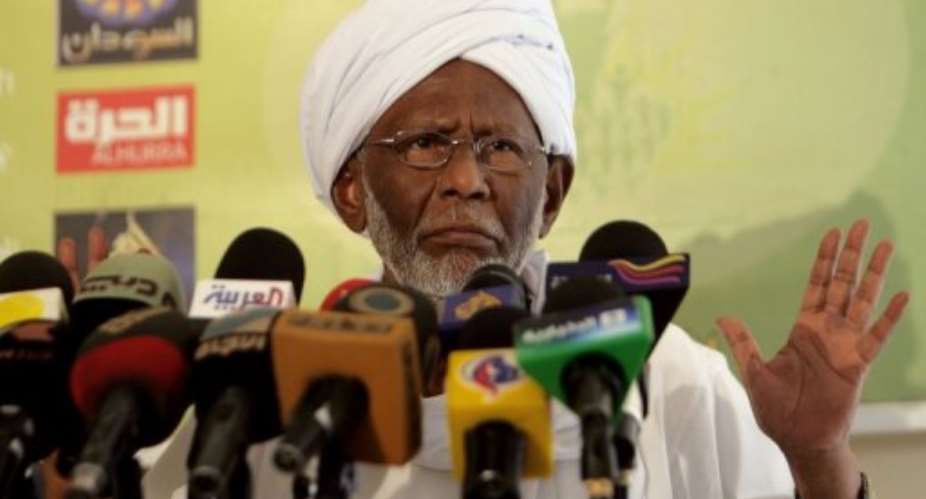KHARTOUM (AFP) - Sudanese intelligence agents have blocked the publication of articles alleging they bugged the offices of a leading opposition politician, editors said on Monday.
Four Sudanese newspapers attended the late Sunday press conference by the Islamist opposition leader Hassan al-Turabi but none reported on his allegations.
Adil al-Baz, chief editor of Al-Ahdath, said his paper received an order "not to publish it."
Another independent daily, Al Tayar, put Turabi's allegations on its front page but an intelligence officer arrived during printing and ordered them not to distribute, said the paper's chief editor, Osman Mirghani.
"Then we offered to change the first page... but he refused, and he decided to take all the copies," Mirghani said.
However, the editor thought the censorship was not linked to the Turabi article but to his paper's recent articles about alleged government corruption.
At his news conference, Turabi produced three short sets of wire, each connected to a tiny metal or plastic box. He said they were bugging devices found in the electrical sockets of two meeting rooms at his Popular Congress Party headquarters on Wednesday.
"I accuse the security service directly," said Turabi, a former mentor who became one of President Omar al-Bashir's fiercest critics.
Turabi said the party searched and found the bugs after they became suspicious of how intelligence agents claimed to have obtained an internal party analysis about Sudanese politics.
They falsely accused the party of planning a coup, in combination with a popular uprising, he said.
"We don't have many secrets," and have already announced the goal of removing the regime, Turabi added.
"Our plan is not to remove it by military means but through a popular revolution."
Sudan's intelligence services have a reputation for visiting newspapers at night to demand that articles be removed, or barring their distribution altogether.





 We’ll protect state wealth from opaque deals – Prof Jane Naana
We’ll protect state wealth from opaque deals – Prof Jane Naana
 Mauritania president says running for second term in June polls
Mauritania president says running for second term in June polls
 I won't ever say I was a mere driver’s mate' — Prof. Opoku-Agyemang
I won't ever say I was a mere driver’s mate' — Prof. Opoku-Agyemang
 2024 polls: 'EC struggling to defend credibility'— Prof. Opoku-Agyemang
2024 polls: 'EC struggling to defend credibility'— Prof. Opoku-Agyemang
 Akufo-Addo gov't's 'greed, unbridled arrogance, unrestrained impunity, sheer dis...
Akufo-Addo gov't's 'greed, unbridled arrogance, unrestrained impunity, sheer dis...
 Election 2024: Ghana needs an urgent reset, a leadership that is inspiring – Ma...
Election 2024: Ghana needs an urgent reset, a leadership that is inspiring – Ma...
 Partner NDC to rollout a future of limitless prospects – Prof Jane Naana Opoku-A...
Partner NDC to rollout a future of limitless prospects – Prof Jane Naana Opoku-A...
 NPP will remain in gov’t till Jesus comes — Diana Asamoah
NPP will remain in gov’t till Jesus comes — Diana Asamoah
 Sunyani Technical University demands apology from former SRC president over sex-...
Sunyani Technical University demands apology from former SRC president over sex-...
 'Dumsor' was resolved by Mahama but ‘incompetent' Akufo-Addo has destroyed the g...
'Dumsor' was resolved by Mahama but ‘incompetent' Akufo-Addo has destroyed the g...
